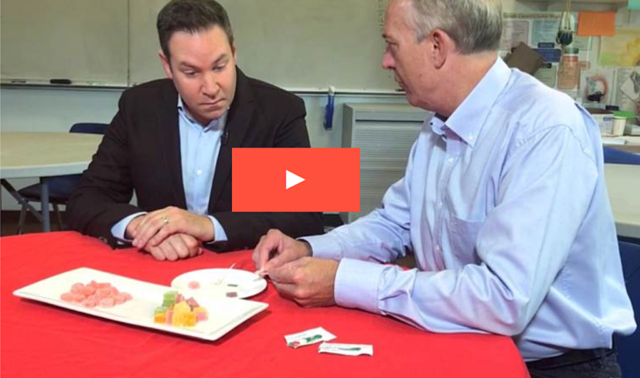Marijuana users: Have withdrawal symptoms after quitting; Higher risk for stroke
Some heavy cannabis users experience withdrawal after quitting
Twelve percent of frequent marijuana smokers experience cannabis withdrawal symptoms as defined by the Diagnostic and Statistical Manual of Mental Disorders-5 (DSM-5), according to researchers at Columbia University Mailman School of Public Health and Columbia University Irving Medical Center. The symptoms include emotional, behavioral and physical symptoms.
Study participants were drawn from the 2012-2013 National Epidemiologic Survey on Alcohol and Related Conditions-III (NESARC-III) which conducted face-to-face interviews with 36,309 people in their homes. The analysis involved 1,527 participants who used marijuana three or more times a week during the year prior to the interview.
Withdrawal symptoms were associated with significant mental disability, family history of depression, and several psychiatric disorders. The latter include mood disorders; anxiety disorders such as social phobia, agoraphobia, and panic disorder; personality disorder; and post-traumatic stress disorder.
The most common symptoms people experienced were:
- Nervousness/anxiety, 76 percent
- Hostility, 72 percent
- Sleep difficulty, 68 percent, and
- Depressed mood, 59 percent
“Most users of the newer modes of administration—vaping and edibles—also smoke cannabis. Therefore, for users in modes other than smoking, the amount of consumption could be underestimated,” said Deborah Hasin, PhD, professor of epidemiology at Columbia’s school of public health. “Given the increase in cannabis potency in recent decades, developing reliable measures to investigate the effect of cannabis concentration and mode of administration will be important in advancing our understanding of cannabis withdrawal syndrome.”
Read Columbia University announcement here. Read Drug and Alcohol Dependence abstract here.
Study shows higher rate of stroke among pot smokers
Marijuana users face a 15 percent increased risk for any kind of stroke and a 29 percent increased risk for ischemic stroke, the most common kind, says lead investigator, Dr. Krupa Patel, of a new study presented Friday at the World Stroke Congress in Montreal. She is a research physician at Avalon University School of Medicine in Willemstad, Curacao.
Dr. Patel cautions that this does not prove marijuana is the cause, but that there is an association that puts marijuana users at a higher risk.
Her study found that in more than 2.3 million American recreational marijuana users who were hospitalized, the risk of stroke rose compared to those who did not use the drug. Over five years, the rate of strokes increased from 1.3 to 1.5 percent among marijuana users across all age groups, from teenagers to adults in their 80s. More than 32,000 marijuana users in the study suffered a stroke including nearly 19,500 who had an ischemic stroke.
Read HealthDay article here.
Rossen Reports Spot the pot: Schools using marijuana test kit to show results instantly
This Today Show’s Rossen Report features a new test kit that quickly identifies the presence of marijuana. Jeff Rossen travels to Colorado where marijuana is legal and visits a high school there that uses the test. He demonstrates how the test works on marijuana-infused and non-marijuana-infused cookies, gummy candies, vape pens, and backpacks.
The kit includes a swab that is rubbed on one of its testing strips. The swab turns red if any THC, the active ingredient in marijuana primarily responsible for the high, is present in or on the items.
Click arrow in photo to see how it works.
States with legal marijuana see rise in car crashes, studies find
Car crashes are up 6 percent in early states that legalized marijuana for recreational use according to two new studies. The Highway Loss Data Institute study compared collision claims filed to insurers in the legal states of Colorado, Nevada, Washington, and Oregon with claims filed in the nonlegal states of Idaho, Montana, Utah, and Wyoming.
The rates of increase range from 13 percent in Colorado and 10 percent in Washington to 1 percent in Oregon for an overall total among the three states of 6 percent.
The Insurance Institute for Highway Safety reviewed police-reported crashes before and after recreational marijuana was legalized in Colorado, Washington, and Oregon. It found a 5.2 increase in the rate of crashes per million vehicle registrations, compared with neighboring states.
Both studies acknowledge that the presence of THC in body fluids does not necessarily mean a driver is impaired and that more drivers are tested for alcohol than marijuana. Even so, “evidence is growing that legalizing its use increases crashes,” says David Harkey, president of the two institutes that conducted the studies.
Read USA Today story here. Read more here and here.
EDITORS NOTE: The featured photo is by Smoke & Vibe on Unsplash.




Leave a Reply
Want to join the discussion?Feel free to contribute!